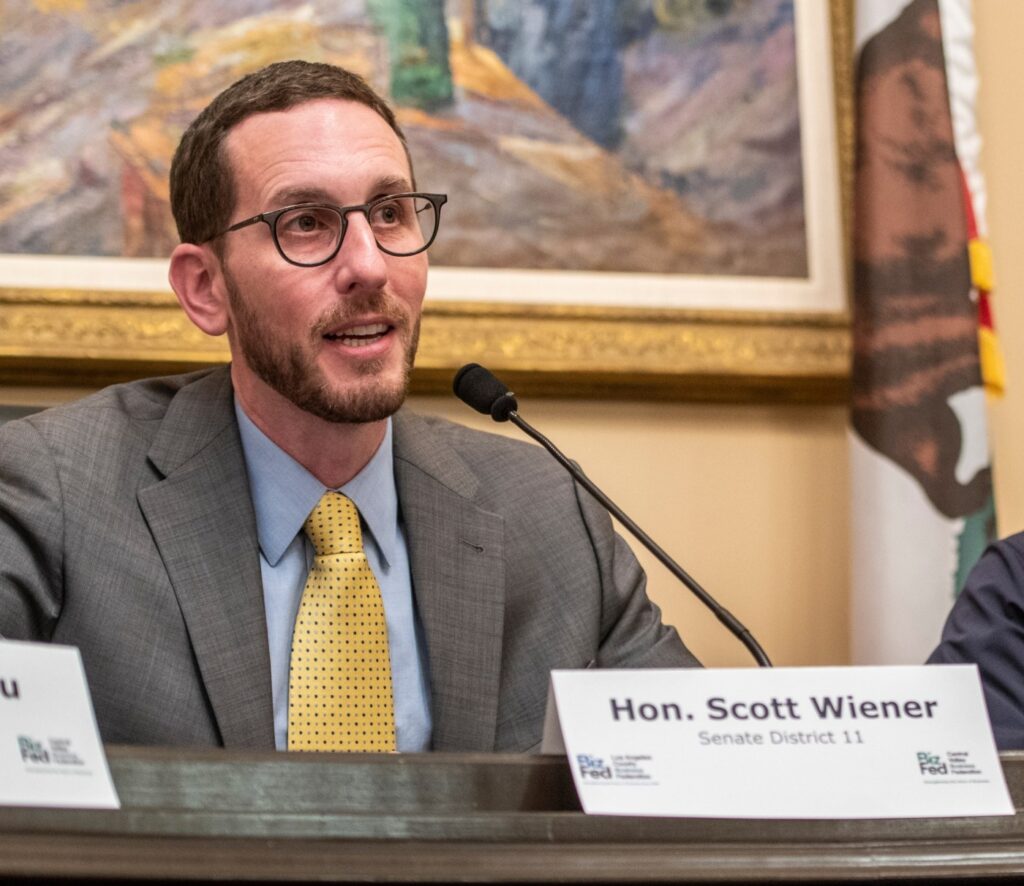
State Sen. Scott Wiener, D-San Francisco, has for years been one of the most pro-housing leaders in the California Legislature, unafraid of the NIMBYs, proud to be a YIMBY.
This month he added to his pro-growth portfolio by introducing Senate Bill 1227, narrowly targeting an area of downtown San Francisco to spur revitalization there with 10-year temporary exemption from the strictures of CEQA — the California Environmental Quality Act.
He says he wants to save projects there that seek to convert office space into housing from “years of potential litigation and appeals while leaving local zoning and permitting authority fully intact” — at the same time adding “a tax exemption for affordable housing to include workforce housing.”
Well, bully for the city by the bay, we say — but what about the rest of us? Because we’d like to see this CEQA exemption expanded on an emergency basis to … everywhere.
But we also don’t want to let perfection — i.e., drastically altering CEQA throughout California — be the enemy of the good. The Legislature should certainly pass this law, and the governor should sign it, and housing advocates should keep a close eye on how it affects the process of providing more places to live for more Californians.
And San Francisco will be the perfect place to experiment.
Wiener’s office notes that while San Francisco is actually seeing a big rebound in tourism, downtown office vacancies have soared, and are unlikely to ever return to pre-pandemic levels. The office vacancy rate there “climbed steadily in recent years to reach 35.8%” by the end of 2023,” he says, “a steep rise from Q4 2019’s vacancy rate of 5%. Foot traffic is returning more slowly to San Francisco than to other California cities, reaching just 67% of 2019 levels compared to 83% for Los Angeles and 96% for San Jose. These reduced levels of activity are stifling small businesses, hotels, and vital local tax revenue in San Francisco.”
Quite simply, the city over-relies on office space, which is not in demand, and has a dearth of housing, for which there is great demand.
“Downtown San Francisco matters to our city’s future, and it’s struggling — to bring people back, we need to make big changes and have open minds,” says Wiener. “That starts with remodeling, converting, or even replacing buildings that may have become outdated and that simply aren’t going to succeed going forward.”
With CEQA in place, however, misguided Californians and anti-development groups afraid of change would surely make the conversion process slow.
Related Articles
A bold idea for California: Instead of passing so many new laws, how about some oversight over existing ones?
State government is already forgetting telehealth’s important role in helping patients
Pathways to progress: Navigating America’s educational reform
California court ruling could crack down on tactics to slow or block construction
In the 40th congressional district, voters can’t trust Joe Kerr to represent their interests
In support of the bill, Mayor London Breed said, “San Francisco thrives when downtown thrives, but the reality is that we need to evolve beyond the traditional 9-to-5 neighborhood it has been for decades.”
Thanks to previous legislation authored last year by Wiener, some housing projects in San Francisco will already soon become exempt from CEQA review under SB 423. But that law applies only to projects that are at least 2/3 housing already. SB 1227 would extend the CEQA exemption to mixed-use projects that contain some housing, but do not meet the 2/3 threshold.
Where are the Southern California legislators seeking such innovative solutions for our region? Suddenly empty downtown Los Angeles office space provides exactly the same kinds of opportunities San Francisco’s does for housing. Even in urbanized areas of Orange County, the San Fernando Valley and older downtowns such as Pasadena’s, the ability to work remotely has forever changed the demand for office space. Opening up vast new supplies of housing quickly will bring price relief for renters and much-needed foot traffic for businesses that survived the pandemic.
Let’s get moving on CEQA, local legislators.
